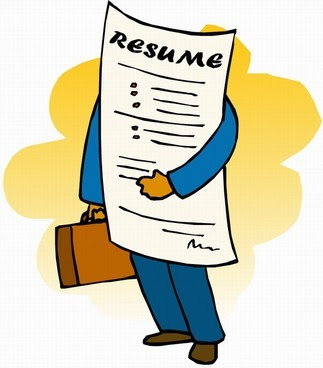What To Write and What Not - To Elicit a Perfect Flawless Resume

A resume looks perfect when a cover letter is attached with the same. A cover letter is an opportunity to create a hiring manager's interest and provide him or her with a sense of your overall suitability and personality. Sending a resume without a cover letter is a killer mistake. The recipient has to make assumptions about the purpose of the resume and if the objective does not clearly state your intentions, the resume very quickly will take place at the bottom of the bin. Cover letter can act as an effective tool to in your job search and also in getting the perfect job.
To start with you need to track back your work experience paid and unpaid, full time and part time along with responsibilities, job title and company information. Make sure your contact information is accurate and up-to-date. Include a primary contact number and a cell phone number and email address if you have them. Also include your degree certificates, school name relevant courses and additional course done if any. If you possess membership in any organization or military service and such accomplishments include that information in resume too. Obviously writing of your full name and address is quite common then too; do not forget to include every minute detail that the recruiter needs to know. Because sometimes while planning big things we often miss small things.
Secondly, do write the objective for your career in the resume. While writing your work experience, begin with the job that’s recent and fresh also tell them your responsibilities focus on the skills you have identified as transferable. Then you can continue with the list of experiences in the resume. Summarize your education, including important facts that are applicable to the job you are applying for.
Include other relevant information such as languages spoken, computer programming knowledge etc. under the heading: Additional Skills, List your extracurricular activities of a non-volunteer nature such as sports, church or youth groups, school committees, etc. If you have a position of authority in any of these groups make note of it and describe your duties as if they were a job.
Finish with the phrase: REFERENCES Available upon request
Your entire resume should ideally not be any longer than one page. If you have had a number of years of experience specific to the job you are applying for, two pages are also acceptable.
Please avoid the following mistakes while writing your resume. The following information is neither necessary nor beneficial for your resume.[/i][/b]
Age / Sex / Marital Status - These details do not determine your ability to perform your job and must not occupy a place within your resume.
References - This information is unnecessary for your resume. Present it later when this will be requested of you as your application progresses to the final stages.
Voluntary Work - Unless there is a direct and positive link with the job you are applying for, omit this out of your resume. Some employers may appreciate your commitment to social work but others may find it as a potential distraction.
Employer Information - It is not necessary to include your current Employer Information details in your resume. You will be asked at interview if this information is required.
Remuneration - Do not mention details of your expected remuneration. Giving this detail will either undersell you or overprice you.
Lies - There are many risks involved in lying, but many job applicants don't seem to get the message about the risks of lying. Once the untruth is discovered, you will lose your job. If there are areas that you prefer not to disclose, do not mention about them in your resume. Just don't lie - be honest.
Spelling Mistakes - Spelling and grammatical errors can automatically disqualify a resume from consideration. Regardless of your qualifications and experience, if you make mistakes on your resume, hiring managers will assume you will be equally careless on the job. After you've finalized your cover letter and resume, check and recheck them for errors in spelling or punctuation. Proofread your document carefully.
Make your resume positive and completely error-free. The following are some tips about how to present your resume:
Resume Length - Keep the resume short. However, in the case of technical people, IT for example, resumes can extend to three pages in order to incorporate relevant technical information. Listing only your most relevant and essential jobs will help shorten your resume. Your achievements for each employer also should be concise. Summarize your previous employment experiences to reduce length if necessary.
Format - Give more importance on content than on looks. If the document lacks eye appeal, few people will review it. Use white paper, and make the thoughts flow smoothly. Producing a document that is well presented, detailed and targeted will attract the attention of your hiring manager.
Drawing Attention - Write four or five sentences that give an overview of your qualifications. This profile or qualifications summary should be placed at the beginning of your resume. You can include some of your personal traits or special skills that might have been difficult to get across in your job descriptions. This can become your objective statement that will give your reader a general idea of your area or areas of expertise. This profile section must be relevant to the type of job for which you're applying. Now move on to list your educational and professional qualifications, clearly identifying your skills.
Font - Another common mistake is to change font regularly throughout the resume. This is distracting and confusing. Also, avoid using fancy fonts. They are not inviting to read, and many people discard resumes that use them. Don't use underlining or italics to add emphasis.
In the recruiter’s world, your resume is your first impression; hence managing that first seems to be your moral responsibility.
